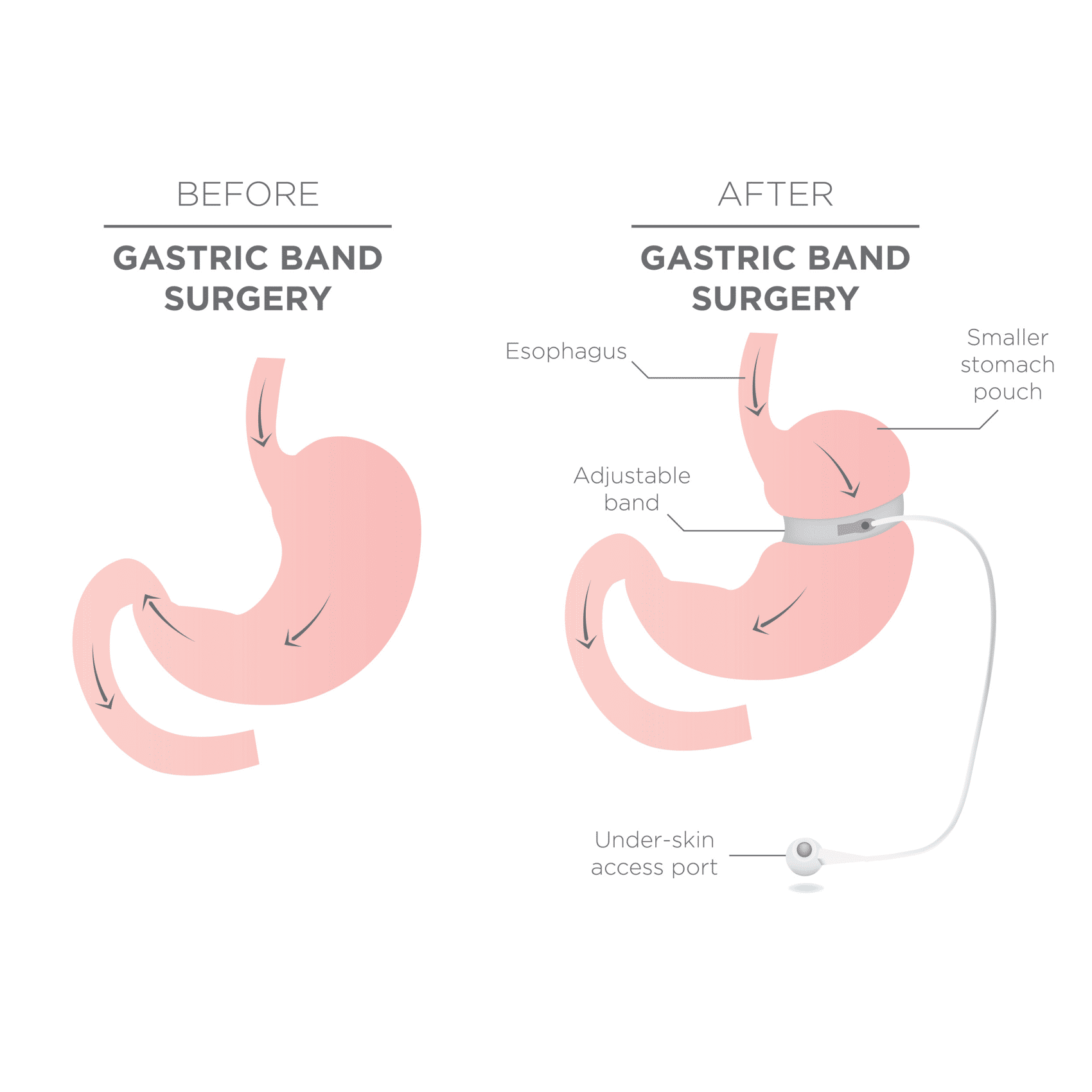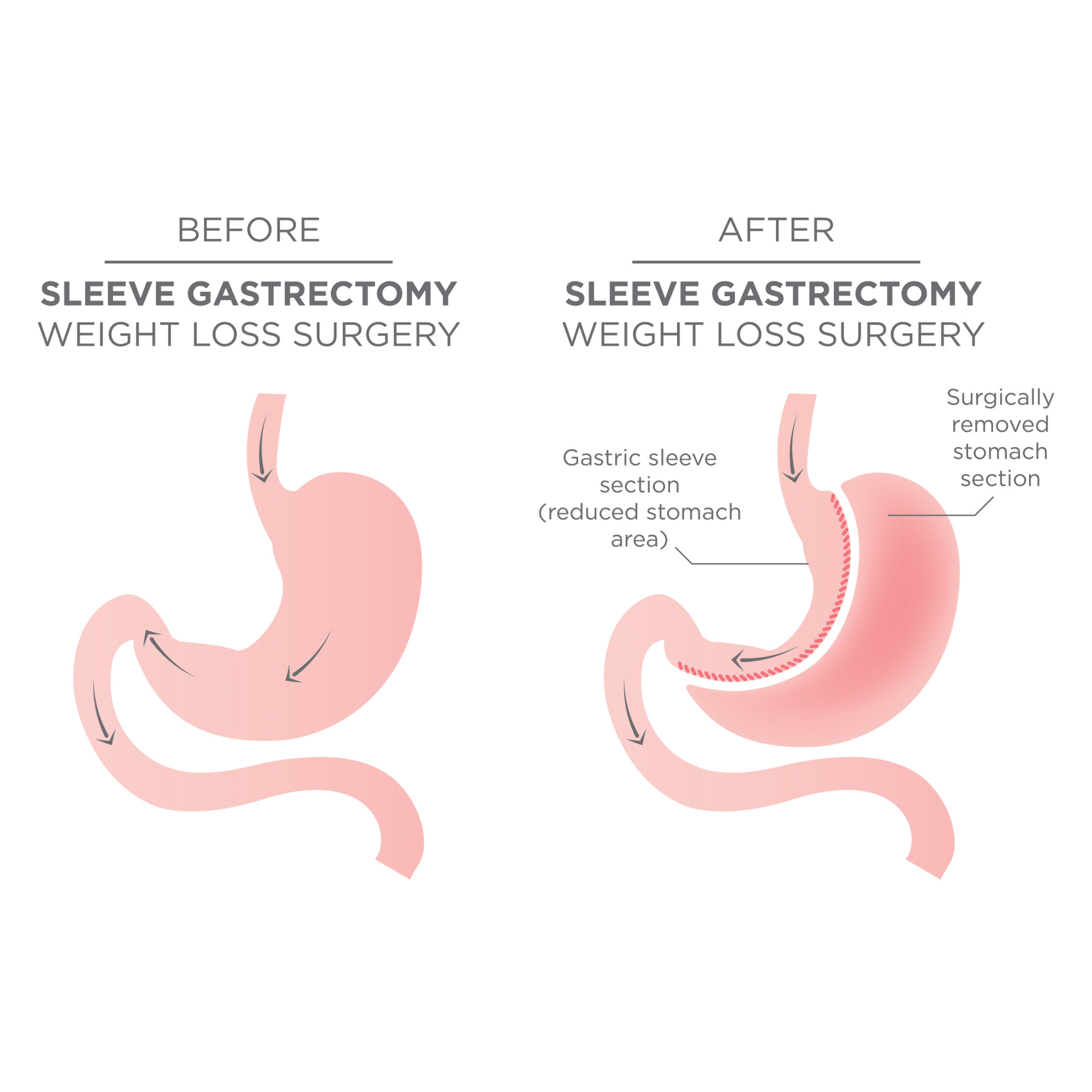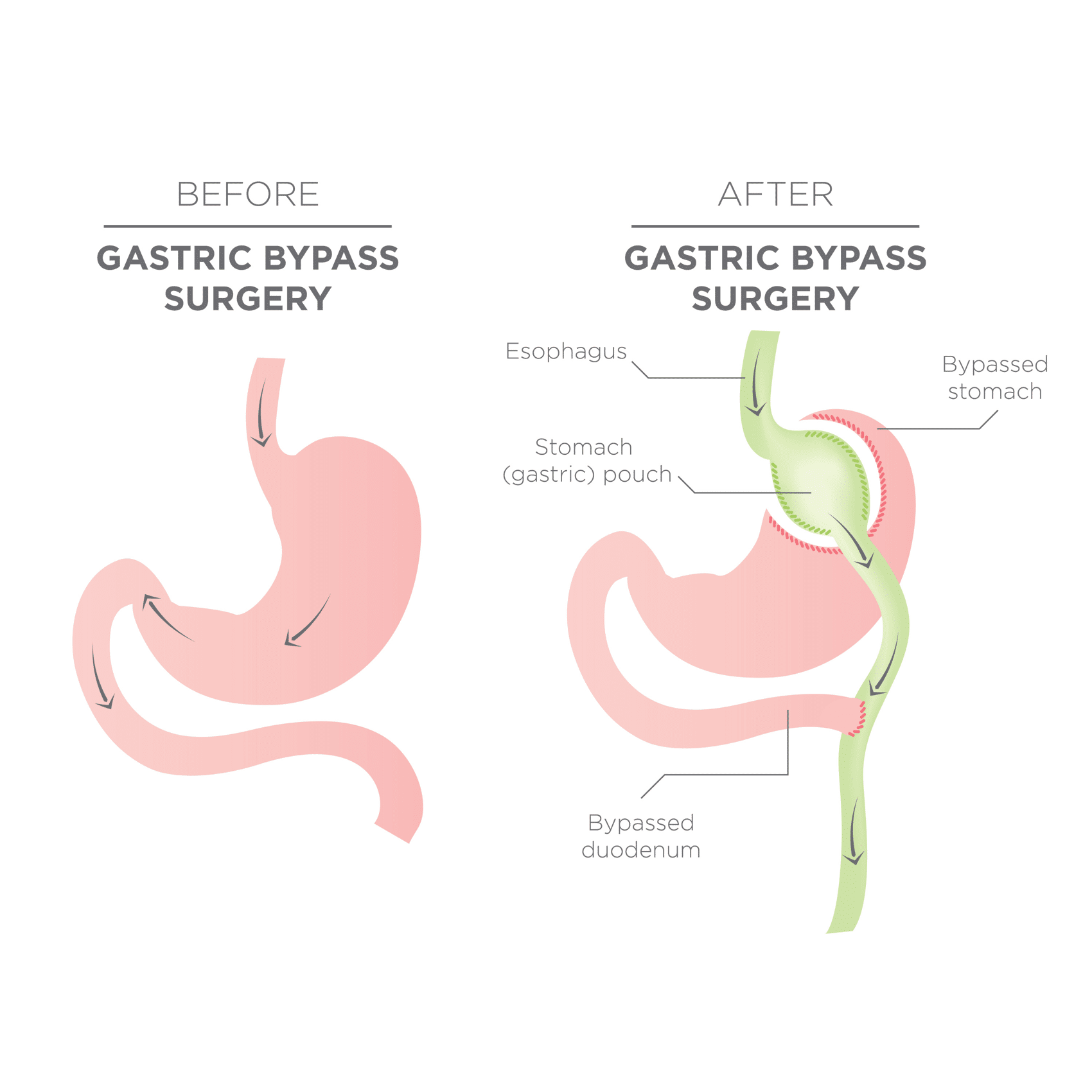In this guide we provide answers to the most common questions asked by those considering bariatric surgery. We explain when the surgery is recommended, what type of bariatric procedures there are, how they are performed and what outcome can be expected.
Qunomedical makes it easy to find information, book treatments, and reach world renowned doctors.
Who is eligible for a Bariatric Surgery?
Although qualification guidelines vary by country, generally, bariatric surgery can be recommended for any adult under the supervision of a medical professional who meets one of the following criteria:
BMI greater than 40
BMI greater than 35 with comorbidities linked to obesity, such as type II diabetes, impaired glucose tolerance, sleep apnea, hyperlipidemia, hypertension, and/or heart disease
BMI greater than 30 with serious health problems
It is generally recommended that bariatric surgery be utilized as a last resort for individuals who have not been successful with diet and exercise programs, regardless of whether they have been on adjunctive drug therapy.
What is Laparoscopic Surgery?
Most bariatric surgeries today are minimally invasive, as they are performed laparoscopically.
Laparoscopic surgery (also known as keyhole surgery or bandaid surgery) is a modern surgical technique in which a surgeon can conduct an entire procedure through a few small incisions (usually .5-1.5cm in diameter), using a laparoscope (a long, fiber-optic cable) inserted through a needle-like tube. In most bariatric procedures, surgeons will make 2-4 laparoscopic incisions.
The main advantages of laparoscopic surgery to patients is that recovery times are much shorter, and there is a significantly reduced risk of pain and hemorrhaging post-procedure.
How are Bariatric Surgeries performed?
There are many different types of bariatric surgeries, with slight variations in technique and available innovation depending on the surgeon and and country in which the procedure is being performed. Below, the three main types of bariatric surgery are detailed. Each procedure may be tailored based on the custom needs and differing weight loss goals of the patient.
Gastric Band

The Gastric Band, also known as the Adjustable Gastric Band, is a bariatric surgery that works by solely restricting the amount of food intake.
In this surgery, the surgeon places an inflatable band around the stomach, thereby reducing the size of the stomach. The inflatable band is filled with sterile saline, and is controlled through a port placed under the skin.
By reducing the size of the stomach, eating just a small amount of food will satisfy hunger cravings and promote a feeling of fullness. The capacity of stomach fullness depends on the size of the opening created by the inflatable band, which gets adjusted over time. The adjustments to the band, known as ‘fills’ (because the band opening gets smaller as the band is filled with more saline), are done by injecting saline into the port that has been placed under the skin. This is usually performed by a physician or other trained medical professional, but over time, can be done by the patient.
With the Gastric Band procedure, food is digested and absorbed as it normally would be--the main method of action is to reduce stomach size to the point that calorie intake is decreased, which leads to eventual weight loss. This particular bariatric surgery is reversible and has the lowest rate of post- operative complications. However, this type of bariatric surgery has much slower weight loss results, and since there is a foreign object (the band) remaining in the body, has the small risk of mechanical complications that would require re-operation.
Gastric Sleeve

The Gastric Sleeve, also known as a Sleeve Gastrectomy, or plainly, the sleeve, is a bariatric surgery that works by restricting the amount of food intake and regulating hormone production in the gut.
In this surgery, the surgeon removes approximately 80% of the stomach, leaving a banana-shaped pouch.
By drastically reducing the size of the stomach, the patient is physically limited in the amount of food (calories) that can be consumed. Additionally, because the stomach volume is reduced, hormones produced in the stomach that impact hunger, satiety, and blood sugar move into normal ranges.
With the Gastric Sleeve procedure, food is digested and absorbed as it normally would be, just in much smaller quantities. The main advantages of this particular type of bariatric surgery is that it induces rapid and significant weight loss, involves a relatively short hospital stay (usually around 2 days), and has shown similar results in short-term studies to more complex procedures, like the Gastric Bypass. The Gastric Sleeve is a non- reversible procedure and does have potential for long-term vitamin deficiencies if a proper diet is not maintained long-term. The U.S. Food and Drug AdministrationExternal Link Disclaimer (FDA) has approved use of the gastric sleeve for people with a BMI of 30 or more who also have at least one health problem linked to obesity, such as heart disease or diabetes.
Gastric Bypass

The Gastric Bypass, also known as the Roux-en-Y Gastric Bypass, is a bariatric surgery that works by restricting the amount of food intake in addition to reducing absorptive capacity of food ingested. This surgery is considered the ‘gold standard’ for weight loss surgeries.
In this surgery, there are two procedures that occur. First, the surgeon will create a small pouch out of the top of the stomach, about 1 ounce (30 milliliters) in volume, separating it from the rest of the stomach. Then, the small intestine gets divided into two segments as well. The small pouch created out of stomach is connected to the bottom portion of the small intestine, hence bypassing the top portion of the small intestine. The procedure is completed by attaching the top portion of the small intestine to the bottom portion of the small intestine, further down, so that stomach acids and digestive enzymes will eventually mix with the food ingested.
By reducing the size of the stomach (the new pouch), the patient is physically limited in the amount of food intake, and thus calories consumed. Additionally, the food that the patient does ingest (including calories and nutrients) is not absorbed by the small intestine to the same degree, as a large portion of the small intestine (where absorption occurs) is bypassed. The re-routing of the food stream also results in hormone changes that impact hunger, satiety, and blood sugar levels.
With the Gastric Bypass procedure, food digestion and absorption are altered to produce significant weight loss by reducing stomach size and small intestine size. The surgery itself has the highest rate of potential complications of all the bariatric surgeries as it is the most technically complex, however, it has the highest rates of long-term success. There is also potential for long-term vitamin and mineral deficiencies, so this type of bariatric surgery requires lifelong adherence to dietary recommendations, vitamin/mineral supplementation, and follow-up compliance. The Gastric Bypass is usually not reversible, but can be if medically necessary.
How long does a Bariatric Surgery take?
The length of the procedure varies based on which surgery is selected and each individual patient’s unique condition, but are generally completed in 2 to 6 hours, under general anesthesia. Most patients need to spend an additional 1 to 3 days in the hospital recovering post-surgery.
Immediately following the procedure, patients will need to rest and recover, but can return home within a few days of the procedure, and start resuming physical activity slowly, at the discretion of their physician. As the procedures are performed laparoscopically, scarring and swelling of the incision sites is minimal, but should still be treated with care.
Most surgeons will assign a specific eating plan post-procedure, supplemented by vitamins and minerals, to ensure that enough nutrients are being delivered. Patients will start seeing the results of weight loss within a matter of weeks, although some may need a few months.
What kind of results can be expected from Bariatric Surgery?
The results of a bariatric surgery vary by individual patient, dependent on the starting weight, comorbidities, and type of surgery performed. On average, most patients lose 15% to 30% of their starting body weight in the first few months following bariatric surgery.
In longitudinal studies of patients who have had bariatric surgery, most patients manage to keep the majority of the lost weight off, with the help of behavioral changes to diet and exercise habits. Although some weight gain over time is expected, the weight gained is usually minimal as compared to the initial weight loss.
While individual results vary based on lifestyle changes implemented post- surgery, the amount of weight lost after gastric sleeve surgery and gastric bypass surgery is similar, while the amount of weight lost after gastric band surgery is much lower.
Beyond the weight loss, most bariatric surgery patients also see positive changes in their obesity-related conditions post-surgery, including type II diabetes, hypertension, high cholesterol, sleep apnea, knee/hip pain, etc., with some symptoms completely disappearing. Patients report higher levels of physical activity and mood improvements.
What are the risks of Bariatric Surgery?
Laparoscopic bariatric surgery is a minimally invasive medical procedure. However, as with any surgical procedure, there are risks associated and potential side effects, which may include bleeding, infection, diarrhea, nausea, vomiting, blood clots, gallstones, hernias, and strictures. However, most patients report a positive change in general well-being and mood as the weight comes off within the first few months following surgery.
To minimize any postoperative complications, patients are advised to select an experienced bariatric surgeon and to follow all recommended post-operative care. Most surgeons will prescribe vitamins and minerals to prevent malnutrition, as well as medications to prevent gallstones, which can commonly occur after rapid weight loss. It is recommended that patients stringently follow the diet and physical activity plans laid out by their surgeons to maintain weight loss and effectively adapt to a new lifestyle.
How much does Bariatric Surgery cost?
For more details about costs across countries and Qunomedical packages, check our Bariatric Surgery Cost guide.
As with any surgical procedure, the cost of a bariatric surgery varies based on the complexity of the procedure selected, the expertise of the surgeon, and what country the procedure is performed in. A comparison of average prices for bariatric surgery around the world can be found below.

In some countries, there is also the option for individuals undergoing bariatric surgery to have their medical costs covered by insurance. Although policies vary depending on the insurance provider, usually if an individual can provide letters of referral from health professionals indicating the medical necessity of the procedure, the costs can be covered or reimbursed in full as any other medically necessary procedure.
Life After Bariatric Surgery
There are several medical conditions that have been shown to improve or go away following a weight loss surgery, including asthma, sleep apnea, cardiovascular disease, type II diabetes, orthopedic problems, migraines, and gastroesophageal reflux disease. Weight loss surgery can change a person's life for the better and is sometimes the most effective option for many people who are dealing with obesity and obesity-related illnesses.
Many factors contribute to successful weight loss after bariatric surgery, including the patient’s ability to make lifestyle changes - such as a diet change and commit to constant exercise - and maintain them in the long term. Patients will receive a nutrition and lifestyle plan from their doctors with diet and post-operative guidelines that they are strongly encouraged to follow.
Lifestyle changes after a weight loss surgery
Diet change
The right bariatric diet after surgery typically includes a high-protein, low-carb diet, with a slow transition from pureed to solid foods. Vitamins and protein supplements will also be included in the diet to allow the body to function at its full potential, help avoid malnutrition and vitamin deficiency. Patients are also recommended to drink extra water (2 liters per day) and avoid high-calorie beverages. Patients may expect a moderate or sometimes dramatic change in their eating habits: snacking should be minimal, portion sizes small and food needs to be chewed thoroughly and slowly.
The new way of eating may seem overwhelming at first but most patients adjust to the new guidelines over time and make them part of their daily routine.
Consistent exercise regime
Exercise can help you lose more weight, give you energy, and feel better. Exercise after bariatric surgery is aimed at reinforcing endurance, flexibility and strength. Right after surgery, it is important to start slow and take slow walks for the first 6 weeks after surgery. You will gradually progress over the following weeks towards your own fitness goals, going from light exercise, to cardio, and strength training.
Daily exercise should become an integrating part of your life as it will not only support your weight loss but also improve your health overall.
What else shall I expect after surgery?
Most people experience no serious complications after surgery. There are a few common side effects that may arise, such as constipation, dumping syndrome (food rushes that can cause nausea, vomiting and sweats by filling up the pouch), gallstones, and wound infections.
Massive weight loss can result in loosening or sagging skin, and that is why many patients opt for post-bariatric body contouring surgery to improve their overall appearance. Surgery can typically be performed 12 to 18 months after surgery when a patient has lost significant weight and has adapted to lifestyle changes. Procedures include body lift, arm lift, thigh lift, and neck lift.
In terms of emotional challenges, some people may experience changes in their interpersonal relationships or hurdles with self-acceptance, due to the process of adjusting to their new body and new life. In order to maintain both physical and mental health, support groups and networks, counseling, and friends and family can help patients feel better and stay focused.
Bariatric surgery is a life-changing decision that can improve your life for the better. It is also important to stress that it takes intentional commitment to make weight loss really successful. That is why preparing for surgery extensively both on a physical and a psychological level is fundamental to ensure a great improvement in your life before, during, and after surgery.
I want a Bariatric Surgery—What’s Next?
You’ve come to the right place! At Qunomedical, your health and happiness are our top priorities, and we intend to prove that to you.
The next step is to contact us for a complimentary consultation, where we’ll determine your goals and eligibility for the procedure. We’ll ask you to fill out a medical form so our medical experts can offer a recommendation on which option would be best to achieve your desired results. Then, once you decide on where you’d like to go for your bariatric surgery, we’ll do the legwork to get you the best price possible at the world’s leading weight loss facilities.
Who is Qunomedical?
With Qunomedical, you can be sure that you’ll get the best quality at the most affordable prices.
We’re an independent company that knows the market inside-out, and we offer you complete transparency because unlike other medical tourism platforms, we work for you, not the hospitals. We only show you the hospitals that we’ve carefully hand-selected based on strict quality criteria, so that you don’t have to browse through massive amounts of information in order to find the best hospital for your treatment.
Regardless of what hospital or treatment you choose, we’re with you throughout every step of your journey: during the booking process, during the hospital visit, and during your recuperation period.
Where can Bariatric Surgeries be performed?
Below a few of our most popular clinics for bariatric surgery:
CosMed Clinic - Tijuana, Mexico
KCM Clinic - Jelenia Gora, Poland
SurGal - Brno, Czech Republic
Kardiolita Hospital -Vilnius,Lithuania
Disclaimer
The information in this article is for educational purposes only and does not replace medical advice. Always consult your doctor before starting any treatments.
Find the Right Specialist at a Fraction of the Cost
Qunomedical only lists clinics and doctors that have been thoroughly vetted with quality and affordability in mind. Contact us for your 100% free, non-binding assessment.